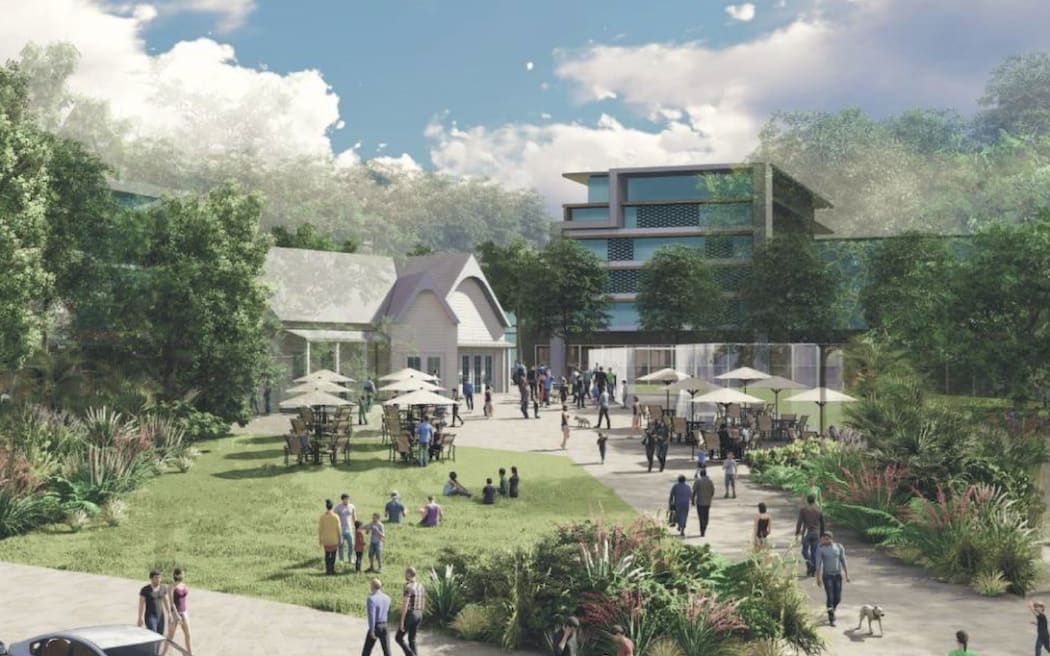
An artist's impression of the development. The Drury-Ōpaheke area is expected to see 22,000 new houses over the next 30 years, which Auckland Council said will require it to invest in everything from new roading and community facilities and parks. Photo: Supplied / LDR
Auckland Council has approved a plan to collect $1.1 billion from developers in Drury over the next 30 years.
The money is expected to go towards $2.3b of infrastructure costs in the area - expected to see the small semi-rural town grow to a city the size of Napier.
But the threat of legal action still hangs over the council's proposal, which is now expected to come into effect from 1 June.

The Drury-Ōpaheke area is expected to see 22,000 new houses over the next 30 years, which Auckland Council said will require it to invest in everything from new roading and community facilities and parks.
The proposal went out for public consultation in September last year and the council voted to adopt it on Thursday.
Under the new policy in Drury the average development contribution per home will increase from $22,564 to $74,142.
Kiwi Property development director David Schwartfeger spoke at today's meeting and said the council's 30-year work programme would be a disincentive towards development in the area.
He said developers in Drury were already contributing towards roading, stormwater and community infrastructure in the area.
"But we need everyone to work together on this," Schwartfeger said.
He said some of the council cost estimates for projects had changed since last year's consultation process, including a cycleway which had increased from $40m to $110m.
"We think it's important we get these numbers right before there's a decision made on them."
A report to council in February said developers opposed to the council's plans in Drury could seek a judicial review.
But Councillor Chris Darby said the council had to approve the proposed works programme and its proposed development contributions policy, even if there was a threat of legal action from the developers.
"We've got to have the stomach to go through with this," he said. "Because at the end of the day it will be the ratepayers that end up paying for it."
He said the threat of legal action from developers was par for the course.
University of Auckland senior lecturer in architecture and planning Bill McKay said the fact the council was seeking to recover more of the costs from the developers in Drury was inevitable.
He said development like that planned in the area came at a great cost to councils and ratepayers and only led to more urban sprawl.
"The model we've used in New Zealand for years has been based on developers getting land cheap, often miles away from the city itself, where they build one and two storey homes."
McKay said the councils were then expected to pick up the tab for all the associated costs.
"One way to discourage that model is to hit the developers with higher development contributions," McKay said. "So I'd support the council on this.
"Developers have far too often got a bit of a free ride and the ratepayers and the councils end up paying."
He said while the $1.1b in contributions expected to be collected from the developers in Drury sounded like a lot, it was not when the $2.3b bill faced by the Auckland Council.
"And someone has to pay for it."
Local Democracy Reporting is Public Interest Journalism funded through NZ On Air





